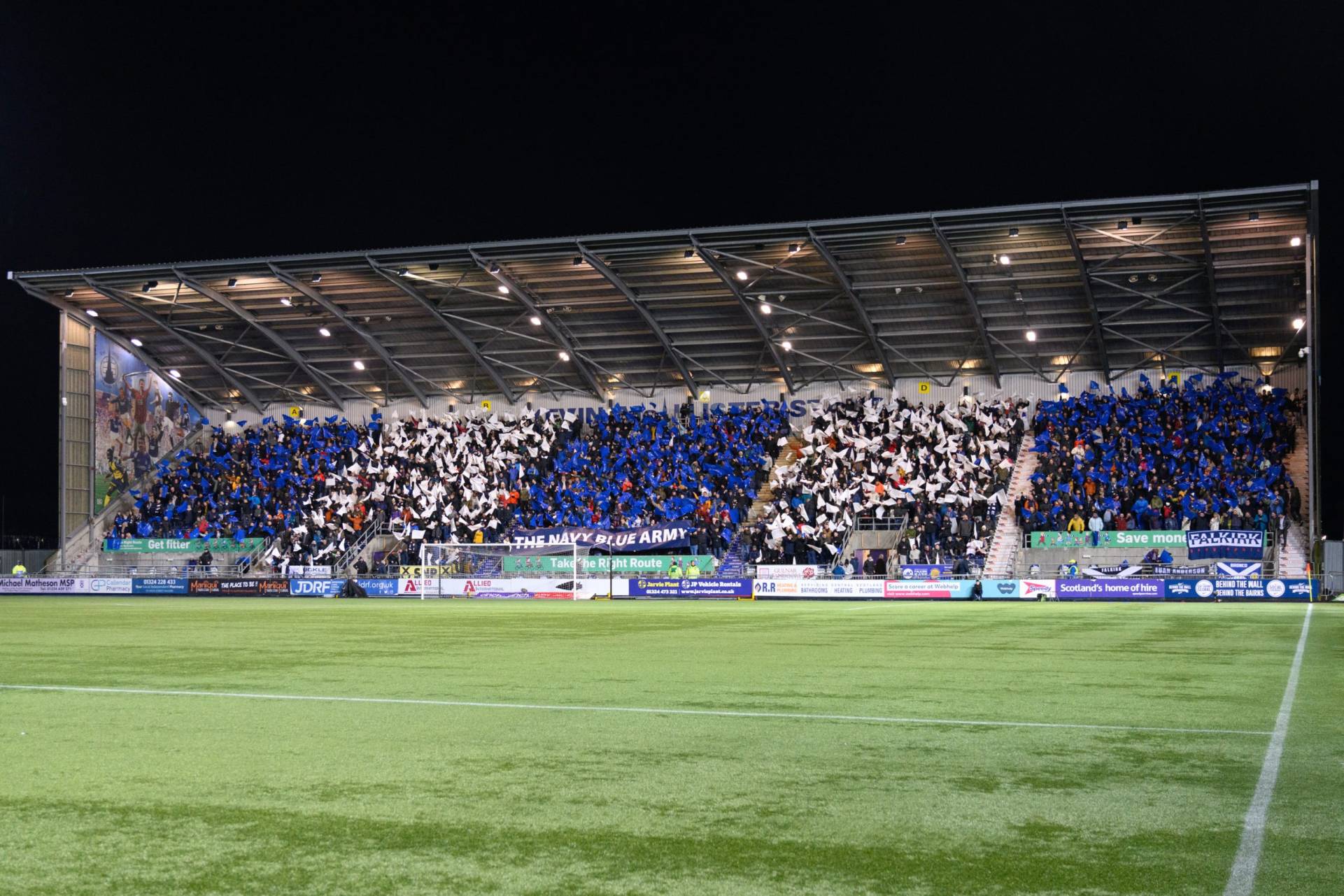Historical Revenue Leaders
By evaluating the financial success of numerous clubs over the years, including the impact of lucrative sponsorship arrangements and large media rights deals, it becomes evident that certain football clubs have consistently dominated the market. Notably, the presence of devoted supporters further contributes to their sustained success. In addition to traditional revenue streams, the influence of emerging sectors such as arabian casinos and the thriving casino industry in Dubai has also played a role in shaping the financial landscape of these football clubs.
Manchester United is one such club that stands out. The club has constantly topped revenue statistics due to its long history and global support. Their on-field success, along with their economic expertise, has propelled them to become one of the world's wealthiest football clubs.
Barcelona, another footballing superpower, has also had enormous financial success. Their global brand and appealing playing style have drawn admirers from all over the world, resulting in a sizable revenue stream.
Real Madrid is another club that has continuously topped the revenue tables, thanks to their historic history and multiple on-field achievements.
Current Financial Titans
To better comprehend the current financial structure of football, let's examine three clubs that have emerged as the sport's uncontested financial heavyweights. In addition to traditional revenue streams, the influence of emerging sectors such as online casinos, with prominent platforms like Betfinal, has played a pivotal role in shaping the economic landscape of these football clubs.
Real Madrid is at the top of the list, with a staggering $757 million in income. They are known for their Galácticos philosophy of signing the world's biggest stars.
Barcelona is close behind, with a revenue of $648 million. The Catalan giants have created a global brand around their distinct style of play, and they have a big fan base that generates significant revenue through merchandising and sponsorships.
Manchester United's revenue has fallen in recent years, but their commercial prowess remains unparalleled. The global fan base and rich sponsorship deals of the English team provide a consistent stream of money.
The Sponsorship Factor
Sponsorship is critical to a football club's financial success. Sponsorship agreements provide clubs with the necessary finances to invest in elite players, cutting-edge facilities, and worldwide marketing campaigns that elevate their brand and attract new fans. In the evolving landscape of sports sponsorship, the influence of diverse sectors is becoming increasingly evident. Notably, the integration of partnerships with Arabian Casinos and the expanding presence of casino in Dubai has introduced a new dimension to football club finances, further diversifying their revenue streams.
Clubs can generate significant revenue sources other than matchday ticket sales and media rights by securing sponsorship agreements. Sponsorship funding enables teams to compete at the top level, bringing in world-class talent and remaining competitive in domestic and international contests.
Football teams provide a valuable platform for sponsors to exhibit their products to a passionate and loyal fan base. Sponsors can tap into the emotional connection fans have with their clubs by connecting themselves with winning teams, generating a sense of loyalty towards their products or services.
Stadiums as Cash Machines
Matchday Revenue:
- Ticket Sales: Fill your stadium with passionate fans who are willing to pay for the experience of watching the game live.
- Hospitality Packages: Offer premium seating, exclusive access to lounges, and fine dining options to attract high-paying customers.
- Merchandise Sales: Set up well-stocked club shops and kiosks, selling jerseys, scarves, and other branded items to boost your earnings.
Non-Matchday Revenue:
- Venue Hire: Rent out your stadium for concerts, conferences, and other events to generate income when there are no games.
- Tours and Museums: Open your stadium to guided tours and create interactive museums that showcase the club’s rich history, allowing fans to immerse themselves in the team’s legacy.
Club Value Growth Trends
A football club's value is determined by a variety of criteria, including revenue, brand strength, and marketability. The value of the greatest football clubs has witnessed significant growth in recent years, primarily attributed to lucrative media rights deals and sponsorship agreements. The landscape of club valuation is also evolving with the integration of diverse sectors.
Football's worldwide expansion is one of the key trends in club value increase. With the sport's worldwide appeal, clubs may now enter new areas and attract a wider fan base. This not only boosts revenue from ticket sales and goods, but it also improves the club's brand value. As more fans from all over the world identify with a team, its worth rises.
Strategic improvements in infrastructure and facilities have also contributed to the club's value expansion. Clubs with contemporary stadiums, cutting-edge amenities, and the ability to host large events such as concerts and conferences can provide new revenue sources.
Commercial Partnerships
To maximize club value growth, you must cultivate strong commercial connections like with online casinos such as 747 live.Here are two major advantages to building economic partnerships:
- Increased Revenue: Collaborating with corporate sponsors allows you to tap into additional revenue streams. Through sponsorship deals, advertising, and licensing agreements, you can generate substantial income that can be reinvested into the club’s development and success.
- Enhanced Brand Visibility: Partnering with well-known brands not only brings financial benefits but also exposes your club to a wider audience. By leveraging the marketing power and reach of your partners, you can gain increased visibility and attract new fans and supporters.
Match-Day Earnings Explained
Ticket sales, hospitality packages, and product purchases all contribute to match-day earnings. When you buy a ticket to see your favorite team play, you contribute directly to their match-day revenue. The integration of partnerships with online casinos like BetoBet, can further enhance match-day earnings. The bigger the earnings, the more fans that attend the game, creating a positive cycle of financial support and engagement for the football club.
Furthermore, purchasing products like jerseys, scarves, and hats contributes to match-day earnings. Fans enthusiastically wear their team's colors, displaying their commitment and financially supporting the club. The cash earned by clothing sales allows the club to invest in new players, enhance facilities, and keep their competitive edge.
The Role of Champions League
The Champions League is not only a renowned tournament, but it also generates major cash for the team. The team obtains exposure to a global audience by competing in this highly competitive European competition, garnering sponsors, fans, rich TV deals, and potential casino bonuses.
Let's take a closer look at the Champions League's impact on the club's financial success:
Benefits | Explanation |
Increased Revenue | The club receives a significant amount of prize money for each stage they progress in the tournament. Additionally, the club’s share of broadcasting rights and sponsorship deals increases with their success in the competition. |
Ticket Sales | The popularity of the Champions League ensures packed stadiums for home games, leading to increased ticket sales and matchday revenue. |
Merchandise Sales | Fans are eager to show their support by purchasing club merchandise, especially during the Champions League campaign. This boosts merchandise sales and contributes to the club’s financial growth. |
Attracting Top Talent | The club’s participation in the Champions League enhances its reputation and appeal, making it an attractive destination for top players. This allows the club to strengthen its squad and maintain competitiveness. |
Brand Exposure | The Champions League provides a global platform for the club to showcase its brand. This exposure leads to increased fan engagement, brand recognition, and ultimately, commercial opportunities. |
Football Academies Revenue
The football academies of the football club provide significant money. These academies serve as a breeding ground for budding football stars hoping to make it big in the game.
- Player Sales: The football club’s academies groom and develop young players, nurturing their skills and helping them reach their full potential. As these players grow and showcase their talents, they attract attention from other clubs, both domestically and internationally.
- International Transfers: The club’s academies have a reputation for producing top-quality players. As a result, they often attract interest from clubs around the world. When players from these academies are sold to clubs overseas, it not only brings in a significant transfer fee but also increases the club’s global recognition.
- Domestic Transfers: The club’s academies also produce players who are sought after by clubs within the same country. These domestic transfers can also generate substantial revenue for the club, as rival clubs are willing to pay a premium to secure promising talents.
- Merchandise and Branding: The success of the football club’s academies contributes to the overall brand image and popularity of the club. This, in turn, drives merchandise sales, ticket sales, and sponsorship deals.
Ranking the Richest Clubs
Barcelona, Real Madrid, and Manchester United have routinely dominated the standings in recent years. Their global popularity, large fan bases, and lucrative commercial deals, including partnerships with online casinos like Lucky Dreams have brought them to the top of the financial landscape in football. These clubs have established themselves as powerhouses on and off the field, luring elite talent and striking lucrative financial partnerships.
However, it is important to note that rankings can change as clubs go through different financial cycles. Newcomers such as PSG and Manchester City have emerged as serious rivals, fueled by wealthy owners and savvy investments. These clubs have quickly risen through the ranks, threatening traditional powerhouses and altering the football scene.





